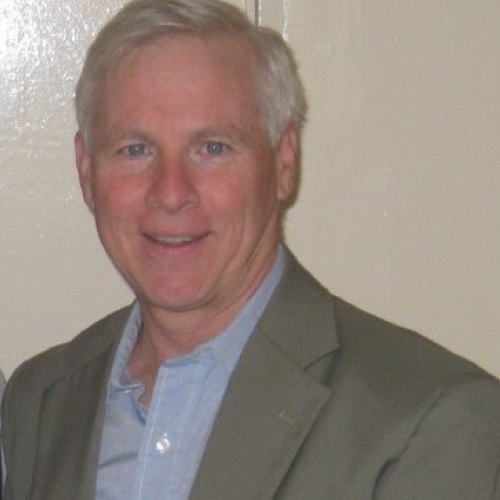What is the story behind your business idea?
I'm not the only founder of SooS technology. Our other co-founder is the one who found out that sound vibration can affect sex reversal. We met in an agriculture exhibition here in Israel for the poultry industry and we just start talking with no context. We didn’t know each other before and he told me about what he was doing with his research and about his day-to-day job.
He observed that in a specific place under an electric pole there were alot more females than males.
He’s not an entrepreneur, he’s an inventor. He is a person that always looks to find new things and has many inventions in alternative medicine. At the time of the exhibition, I was the CEO of a company in the poultry business, and he said, “I have a patent on how to transform males to females.” This is a significant issue in the industry. Most males are exterminated after they hatch.
My co-founder observed this new idea in his yard whilst living in a small village and they grow with some chicks in the garden.
He observed that in a specific place under an electric pole there were alot more females than males. In the beginning, he thought it was something connected to a magnetic field, but then he understood that it was the sound vibration.
It took us more than a year before we did it as a company. First, I tried to connect him with one of the most prominent players in the Israeli industry. I introduced him to venture capital, which I thought would be a good chance for investment in the company. I didn't think even about investment at the time, but I wanted him to help him to file a patent and for that, you need money.
After a year of just talking, he proposed we started doing the experiments and validating the science behind them. We did a joint experiment in a small laboratory incubator, and I needed to recruit for this mission one of the best layer poultry farmers in Israel. He was kind enough to let us give him a headache with our experiments.
He did the experiment for us and after repetitive results, we saw that we had many more females than males. I decided that it was a real thing, and we went over to Chicago to pitch for funding. We decided not to work with the industry at that time, because you need to be more mature as a business.
What would you say were your biggest stressors as a founder?
Currently, our biggest challenges are to scale up and raise money. Everything can be sold, especially if it's connected to the product. It's just a matter of time and money. We no longer struggle with the proof of concept where we’d need to show the repetitive results we are after.
The difficulty from my point of view was always raising the money because there are not a lot of venture capitalists that are working with AgTech. Even fewer are working with livestock.
The second thing that now we are struggling with is to do the scale up from thousands of eggs to 10’s of thousands. And doing that to a high-quality commercial standard because this is an industry of huge players. It’s not a small farmers’ industry, with much more industrial companies in the picture, and you need to come up with a product that is 100%.
How do you measure success?
When you have good results, it's easier to convince people to join you. That works better when you have very good and repetitive results. It's much easier to convince people to put our technology in their facilities and try what we are doing. The more people using our technology the more success we have.
What I’m trying to say is that when you do something that has this much meaning, you can’t give up. You must go all the way.
Were there any moments you thought it was all over?
No. I know everyone thinks that what they're doing is a good thing, but what we are doing is some-thing that changes the world and changes the way the poultry industry will work. Most houses of the world eat eggs or chicken or both. What I’m trying to say is that when you do something that has this much meaning, you can’t give up. You must go all the way.
Can you tell me about your experience with fundraising?
We have been doing it since 2018. There is a lot of networking and publications. You need to tell the story all the time, to as many people as possible. I think it's always about how you amplify the story, and how you expose what you are doing to more people.
One of the things that we are doing now is launching PR campaigns to make this idea more widely known. I think that because what we are doing is such a big story and people understand it. It’s not like remote applications on the cloud that people can’t fully grasp. It’s not some zeroplus application, it’s meaningful and impactful. Almost every household in the world had eggs or chicken in their kitchen!
It's always about networking and meeting one person that connected to the other person connected to another person, and eventually, you get enough exposure.
What advice would you give other startups in the field?
What I would tell other start-ups is, firstly, you need to have a product. It doesn't matter if the product is not a hundred per cent perfect. Of course, if you are in R&D, the stage does matter for you to grow a product. You need to have a product, from my point of view, better and more real, less abstract.
Secondly, don't be modest. If you have something important to say, speak about it out loud, and I'm saying this as a woman. Most of the women entrepreneurs that I know are much more modest than men in the industry.
If you run a start-up, you want to raise money and you want people to speak about and invest in you, you need to convince them and you need to speak about what you have.
I also think it's good to have an industry background. It's good to know what you’re talking about, and I think it's very important to have a good personal connection with the people that invest. You talk to these investors, all the time, sometimes seven times a week. You need to create a good relationship with them. If you don’t know how to do that because you’re focused on R&D, take people in your team who are not afraid to do that. They won’t be shining above you. They will be shining with you.
Where would you like to be in 5 years?
The technology of SooS will be in most of the players in the industry in the Western World. We have pilots running worldwide, in Belgium, Italy and the USA. We’re still doing small-scale while developing larger-scale pilots. I believe most of the industry will be using our technology, this is something that they need.
The current technology in the market is technologies that focus on animal welfare. They are very expensive, and it reflects on the end users. Countries need to subsidise the gap between the prices. Eventually, if it costs much more and the industry is not satisfied with that, it won't work together.
You need to find a balance between the industry, the consumers, the end users, regulation, and animal welfare, which is driving what we are doing. I think in five years our technology will be superior in the industry.
One of the things that we've achieved in the last two years is that we've managed to set up a research collaboration with universities in the US. We believed this research will develop our knowledge about how sound affects sex differentiation. We think that there will be other applications to what we learned here.
What change would you like to see in the industry?
Since it's a huge industry – worldwide it is about $600 billion a year with eggs and meat. We understand it's a big industry, with rich companies. I'll be more than happy to see more big players involved or supporting more R&D in poultry, and not just ready products.
I think that I would be much happier to see if there would be more education focused on agriculture. I'd also be more than happy to see more women in this industry and not only related to family businesses but through education. It's an important industry.





































